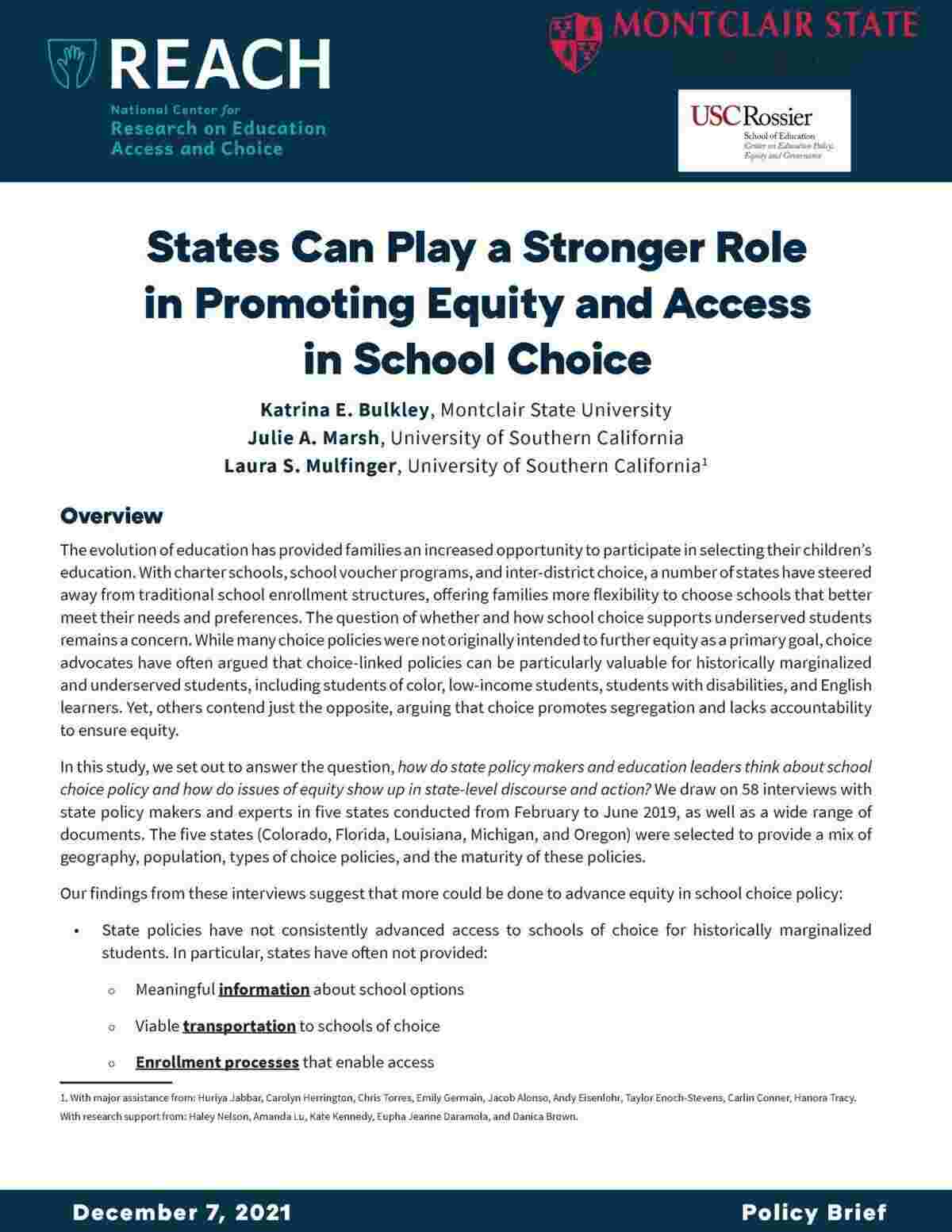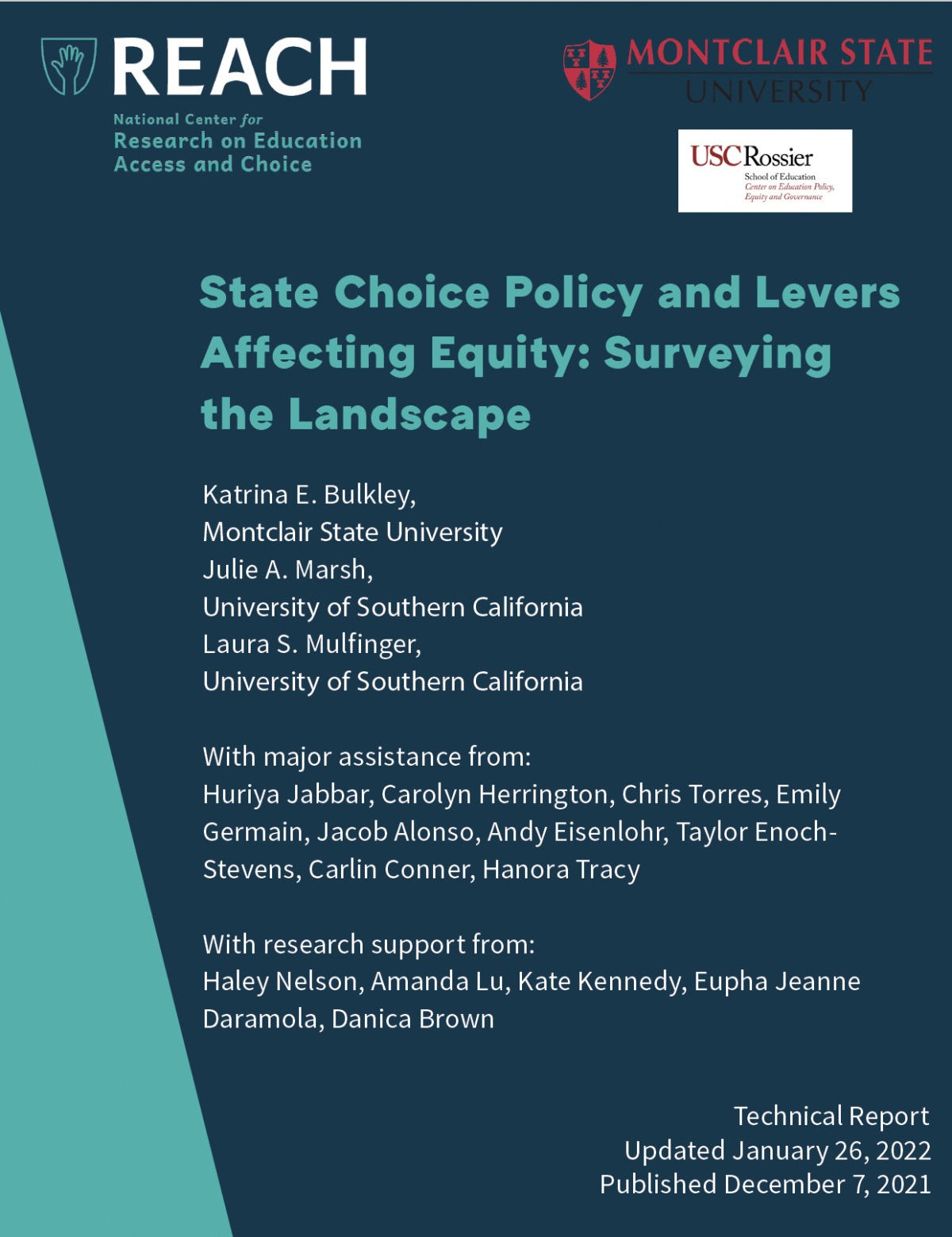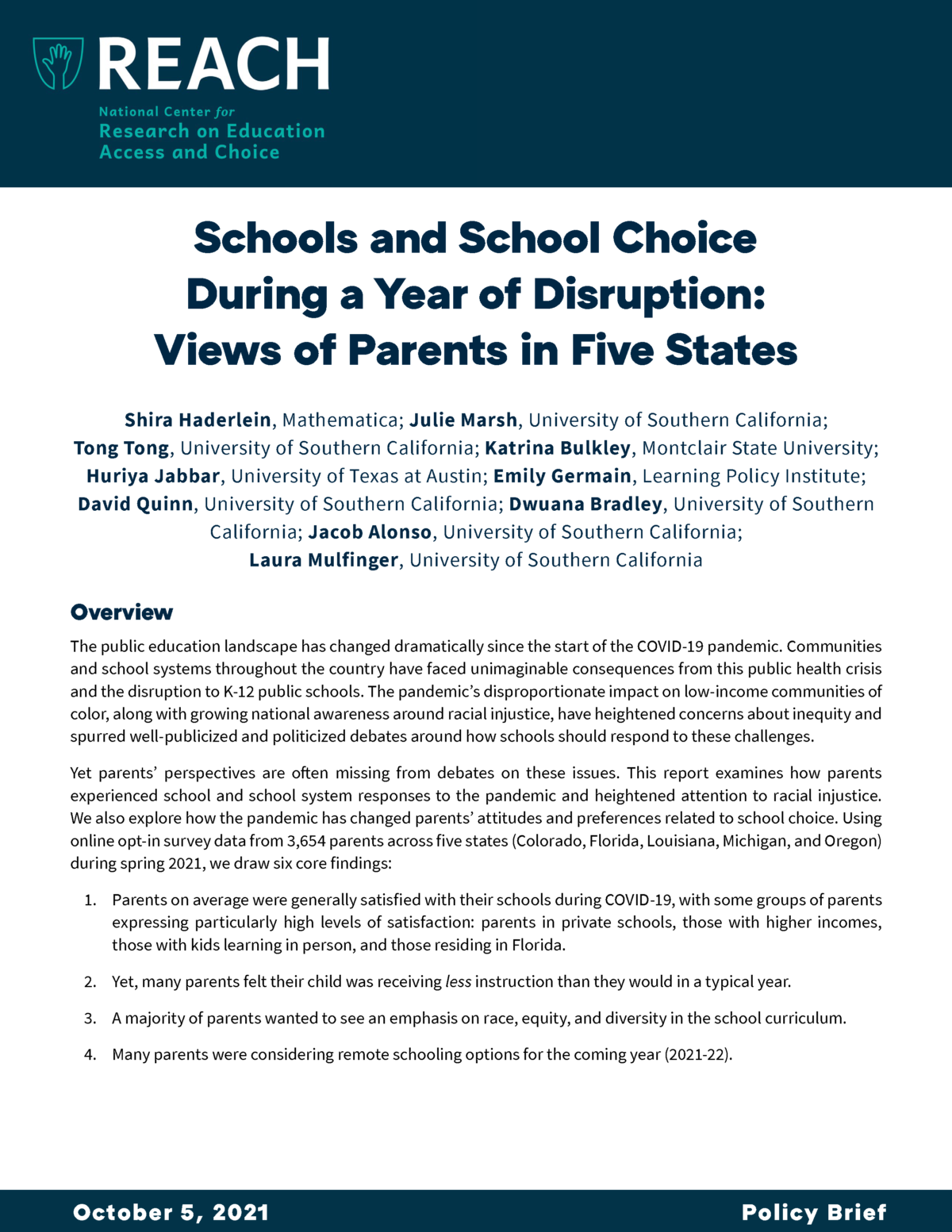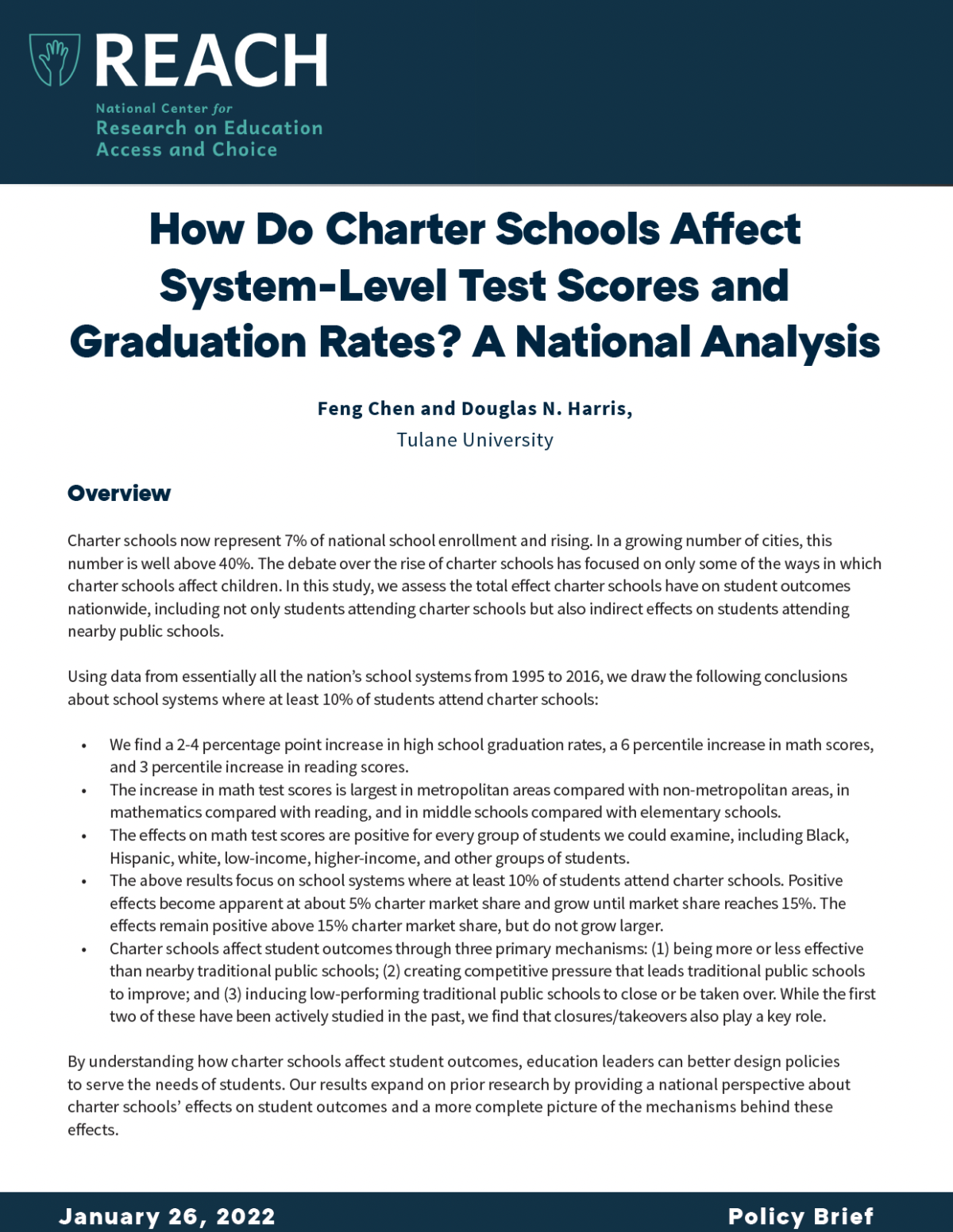The evolution of education has provided families an increased opportunity to participate in selecting their children’s education. With charter schools, school voucher programs, and inter-district choice, a number of states have steered away from traditional school enrollment structures, offering families more flexibility to choose schools that better meet their needs and preferences. The question of whether and how school choice supports underserved students remains a concern. While many choice policies were not originally intended to further equity as a primary goal, choice advocates have often argued that choice-linked policies can be particularly valuable for historically marginalized and underserved students, including students of color, low-income students, students with disabilities, and English learners. Yet, others contend just the opposite, arguing that choice promotes segregation and lacks accountability to ensure equity.
In this study, we set out to answer the question, how do state policy makers and education leaders think about school choice policy and how do issues of equity show up in state-level discourse and action? We draw on 58 interviews with state policy makers and experts in five states conducted from February to June 2019, as well as a wide range of documents. The five states (Colorado, Florida, Louisiana, Michigan, and Oregon) were selected to provide a mix of geography, population, types of choice policies, and the maturity of these policies.
Our findings from these interviews suggest that more could be done to advance equity in school choice policy:
- State policies have not consistently advanced access to schools of choice for historically marginalized students. In particular, states have often not provided:
- Meaningful information about school options
- Viable transportation to schools of choice
- Enrollment processes that enable access
- Similarly, state policies have not consistently enhanced the supply of high-quality schools of choice. States have not carried out:
- Intentional planning around school openings and closures and school locations
- Consistent and rigorous oversight of school quality
- Efforts to shape the quality and distribution of professional educators
- A small number of state policies did focus on improving school choice equity and access for historically marginalized and underserved student populations, although more research is needed to understand their implementation and impact.
Interviewees attributed state governments’ inattention to equity to: 1) states’ reluctance to challenge the tradition of local control over schooling, and 2) views that equity-focused efforts are often too expensive; and 3) the limited prioritization of equity. While we cannot determine why equity was not a priority for policymakers or even definitively say whether it was considered during deliberations, we can say that individuals interviewed tended to foreground other priorities and goals for school choice policy – namely that choice was a vehicle for innovation, for allowing markets to operate schools more efficiently, and for ensuring parents freedom to make decisions regarding their children’s education.
In addition to describing how state policymakers consider and act on improving equity in school choice, this brief offers examples where states have pursued equity and provides options for policymakers to consider.



